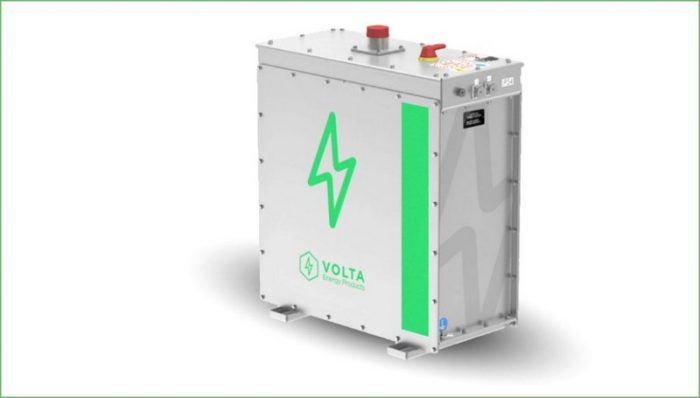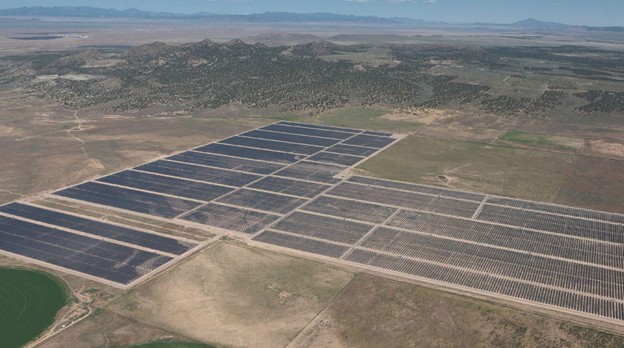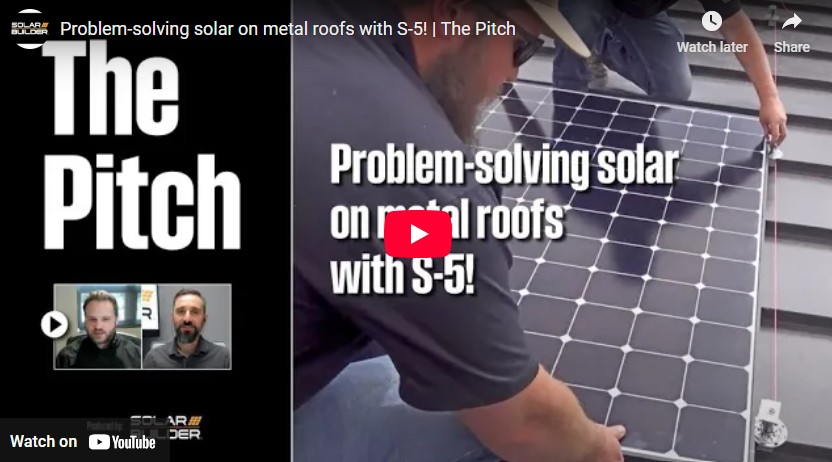Viridi nets nearly $100M for ‘fail-safe’ lithium-ion battery tech in funding round

Viridi Parente Inc. has raised $94.695 million in a Series C funding round, its latest step toward delivering a “fail-safe, point-of-use lithium-ion battery technology at scale,” the company says. Jon M. Williams, Chairman and CEO of Viridi, explains:
“Point-of-use energy storage has the potential to more than double the delivered capacity of our entire energy transmission system without additional investment in new infrastructure. … The majority of the innovation around this technology is focused on battery powered vehicles, however, technology designed for cars does not translate into other sectors of the economy where safety, resilience and cycle life are the leading design requirements. Viridi is developing safe, resilient and cost-effective point-of-use lithium-ion battery systems that will power the other 97% of our economy.”
Viridi’s Volta Energy brand offers stationary lithium-ion battery pack systems designed and tested to be fail-safe for installation in occupied spaces, the company says. Systems can be configured to provide from 50 kWh to 5 MW of distributed energy storage at the point-of-use. Applications range from data centers and manufacturing, to residential and commercial, to medical and research facilities.
The Series C round was led by existing investor B. Thomas Golisano, an entrepreneur, philanthropist, and civic leader who has demonstrated an ongoing dedication to building innovative businesses. New investors include Ashtead Group/Sunbelt Rentals, a leader in the equipment rental industry providing a highly diversified offering of equipment and solutions that service a broad customer base with more than 1,025 locations supporting a rental fleet of $11 billion, and National Grid Partners, the investment arm of National Grid, one of the world’s largest investor-owned energy companies.
“Volta Energy’s pack architecture uses the same carbon fiber thermal management technologies we developed for NASA’s demanding space program, including crewed missions. Viridi has not only innovated fail-safe pack design using these new technologies, they have innovated methods for testing pack safety in extreme conditions that no one else has even attempted. We’re very excited to be part of the technology to bring fail-safe lithium-ion energy storage to point-of-use customers. This strategic investment by Sunbelt Rentals and National Grid means that Viridi has the channels that can scale this technology into a massive market,” said KULR’s CEO, Michael Mo.
“At National Grid, we know decarbonizing transport is critical to achieving Net Zero,” said Lisa Lambert, Chief Technology & Innovation Officer, National Grid and President & Founder, National Grid Partners. “And while momentum’s been gaining in consumer cars and trucks, there’s not been nearly enough focus on industrial vehicles, which create significant amounts of greenhouse gases. National Grid Partners is excited to support the Viridi Parente team, and we look forward to helping them seize this emerging market opportunity.”
According to Bloomberg New Energy Finance (BNEF), energy storage installations will reach over one gigawatt-hour by 2030 and will require more than $262 billion of investment, with about one quarter of installations to be located at homes and businesses.
Viridi’s Green Machine brand sets out to be the first lithium-ion pack system that meets the demands of the construction and heavy industrial markets, with systems that feature long cycle life, resilient physical design and completely self-contained architecture. Green Machine has over 250,000 hours of field use with actual customers on its portable lithium-ion battery systems, in a market projected to reach USD $205 billion in North America by 2025.
With safety being a key factor to the success of point-of-use battery storage, Viridi Parente is working with KULR Technology Group, Inc. (NYSE: KULR) to combine its patented safety technology with Viridi’s battery architecture, creating a pack system that is safe enough to install indoors and durable enough to withstand the outdoor elements. KULR’s technology is being used on the Mars 2020 Perseverance Rover and other mission-critical NASA applications.





Comments are closed here.